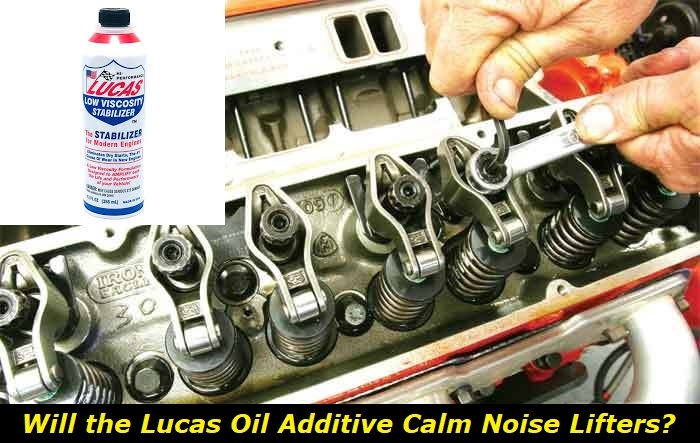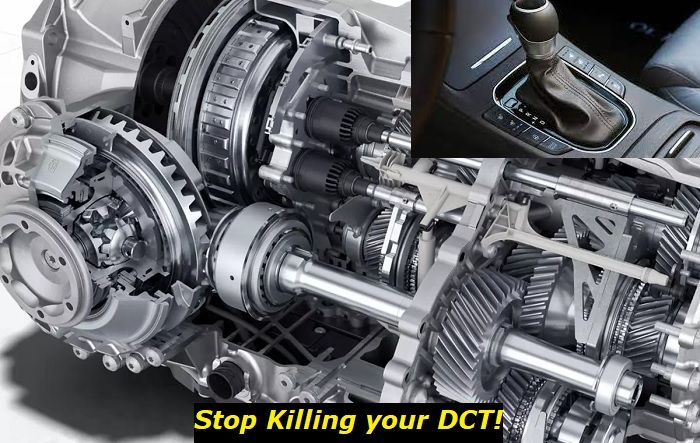Lucas Oil additive is said to help with noise lifters but I am very skeptical about it. The product seems to be of good quality but of no real purpose. As with almost all other additives, I can tell you for sure that you don't need to try Lucas Oil for calming down noisy lifters. This is not the best way to deal with the problem.
Lifter additives highlights
- Efficiency:close to zero
- Availability:limited number of products
- Average price: $65
- Way to use:add to engine oil
- DIY use:yes
- Experts' advice:no positive advice
- Independent testing:negative testing results
- Consequences:spoiling of oil properties, engine damage in the long run, no effect on lifters

What's Lucas Oil additive?
As the manufacturer says, the Lucas Oil additive is 100% petroleum product. Some experts describe it as an ATF - a low-viscosity product that is aimed at cleaning different types of contaminations in your engine and then just mixing up with the engine oil. But I don't see the reason why this magic can happen in your engine.
Lucas Oil additive is basically a certain type of oil that is aimed at cleaning some parts of the engine life lifters or VCT solenoids. It's less viscose than your original engine oil and thus it easily goes to passages that are clogged or thin. But actually, it mixes with engine oil as soon as it gets to the engine and loses its qualities.
Here's how it should work:
- the additive gets to the engine and magically cleans all the engine oil passages;
- then, it stays in the engine oil and somehow controls the cold start, dry start, and other challenges;
- the additive makes the oil more efficient than it was before;
- together with the engine oil, this additive keeps cleaning the engine and turning it new;
- some magic happens and this oil disappears from the engine oil pan once it did its job.
Sounds like complete misinformation and it actually is wrong. If you are about to add some Lucas Oil additives to your engine to "stabilize" oil, you can add ATF with almost the same results - nothing good will happen. It won't clean your lifters and won't stop them from ticking.
Maybe, the Lucas Oil additive will change the overall sound of engine work a little just by affecting the oil viscosity. If the viscosity changes, the engine sound will change, too. But it doesn't mean that the engine is more comfortable now. You may even do bad things to your engine by changing the original oil viscosity.
Why won't Lucas Oil additive help with noisy lifters?
First of all, let's understand why a lifter may start ticking. The work of the lifter is to easily move back and forward to adjust the valve clearance. If it stops working, the valve may start ticking and creating bad noise. After some time, this can damage the valve and the engine head, so driving with the noise lifter is not the best idea.
The lifter may cause ticking sounds when it is blocked and doesn't move. This happens because the lifter may be contaminated and the oil doesn't come through its tiny passages. This is where Lucas Oil found the gap to speculate and the manufacturer says that their additive will clean this passage.
Here's why it won't happen, in the majority of cases:
- the blocked passage in the lifter can't be cleaned just by changing the viscosity of the oil;
- also, chemicals and cleaners won't help, the passage is already blocked and nothing comes through it;
- the engine oil pressure doesn't change when you add Lucas Oil additive, so mechanical cleaning doesn't work either;
- the additive is mixed with oil very quickly and basically doesn't change anything in its chemical contents, so it doesn't affect the lifters at all;
- there is no way that even highly changed properties of the oil can clean the lifters that are already clogged and blocked;
- for getting the bad lifter back to life, you will need to "pump" it - I have no idea how Lucas Oil additive can do that.
Usually, oil additives speculate their effectiveness by changing oil viscosity. When they do this, your engine may temporarily stop burning oil or letting a lot of smoke out of the pipe. But this "repair" has a dark side - the properties of engine oil change and the engine is not lubricated as it should.
This leads to problems that sometimes can even kill the engine faster than if you never used any additives at all. Although Lucas Oil is not this kind of product and is considered to be a high-quality and reputable oil additive, I still don't see any reason to use it to calm the lifters. It just physically can't do anything to make a faulty lifter work again. This is impossible.
Best solutions for noisy lifters
Now that you know the Lucas Oil additive won't help with noisy lifters, you may be trying to find the proper solution for the problem. I will outline the most effective ways to deal with noisy lifters but will most likely write a separate article about it in the future.
So, here's what you may want to do:
- Take the lifters off the engine. It's important to write which lifter comes from which valve because without this the engine won't start after repair.
- Add oil. You can use different tools to pump oil through the lifter in order to lubricate it because the lifter may be dry.
- Then try pumping the lifters. The lifter that is not pumping is dead. You need to make sure that the lifter pumps. For this, press the working part of it with some tool and see if it pumps. Only when it moves almost freely, you can install it back.
- Replace broken lifters. If you discovered that one or several lifters didn't pump, you should replace them. Just buy the new high-quality lifters for your engine.
- Install the lifters back. Assemble the engine and try starting it. It may start harshly for the first couple of times. Let the engine idle and fill the lifters with oil.
This is the only way you can ensure that your hydraulic lifters are OK, they work, and they are efficient enough. I believe no additive can do this job for you. Actually, the additive can even make things much worse and cause other damage to the lifters and all other parts of the engine. This will lead to even higher expenses in the end.
I'm not expecting that a lot of you know how to take the lifters off the car and pump them. So, I hope you will not dig into the engine without understanding how it all should work. Better find a good independent repair shop that will help you out with the lifters. Otherwise, you are risking to make things even worse.
Can you drive with noisy lifters?
A lifter tick will not immediately pose a lot of risks for your engine. It's not recommended to drive a lot with this problem. But once you discover that a lifter makes some noise in your vehicle, it's not necessary to just turn off the engine and call a tow truck. No, you can still go home or to work and then arrange your visit to a good repair shop or the dealership.
But driving 1000 miles or more with noise lifters and waiting till you have time to go to the repair shop is not the best choice.
Here's what will happen:
- the noise lifter will keep ticking even more and this will obviously get on your nerves;
- the dead lifter will not adjust the valve height leading to a loss of efficiency;
- the valve will also hit the engine head and eventually may need a replacement;
- the engine will have problems with compression in one of the cylinders;
- the oil consumption may grow and the low oil levels will also damage the engine;
- you can experience problems with catalytic converter because of oil consumption and bad fuel combustion.
Now you know that driving with a faulty and ticking lifter is not the best idea. It can lead to all kinds of engine head damage and will eventually make the engine death much closer than you think. Of course, this is a serious issue that you need to remember about if you decide to wait for the visit to the repair shop.
Also, you know that pouring different additives like Lucas Oil or any others is not a good option in your case. You should be careful with additives because they may eventually bring more harm than good.
About the authors
The CarAraC research team is composed of seasoned auto mechanics and automotive industry professionals, including individuals with advanced degrees and certifications in their field. Our team members boast prestigious credentials, reflecting their extensive knowledge and skills. These qualifications include: IMI: Institute of the Motor Industry, ASE-Certified Master Automobile Technicians; Coventry University, Graduate of MA in Automotive Journalism; Politecnico di Torino, Italy, MS Automotive Engineering; Ss. Cyril and Methodius University in Skopje, Mechanical University in Skopje; TOC Automotive College; DHA Suffa University, Department of Mechanical Engineering






Add comment